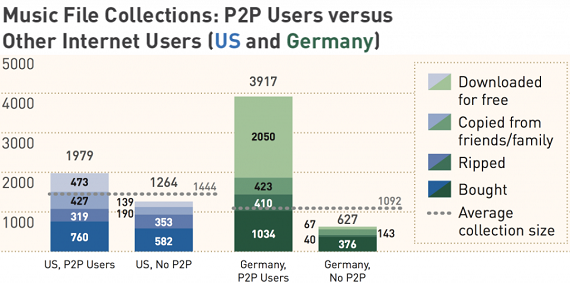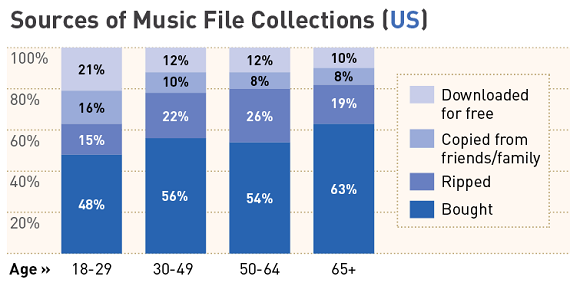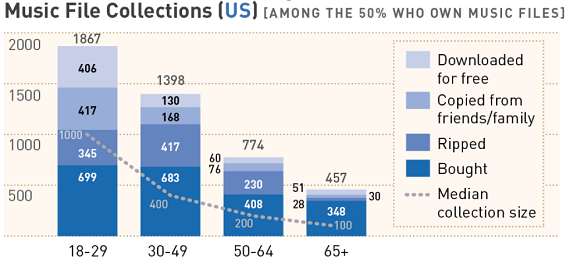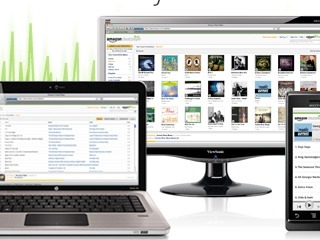
Remember back in the Napster days, when there were reports of the music industry actually suing people for downloading music illegally? There was a cartoon in a magazine at the time that I still remember: it was a baby, holding a CD in a dark alley, with a police spotlight on her. The point of the picture was clear: these are the people the music industry felt they had to go after>
A new study from the American Assembly shows just how shortsighted the music industry was, and probably still is, about piracy.
As it turns out, according to this study, those who illegally download music using peer–to-peer (P2P) services are also the ones most likely to purchase it legally.
The study found that those who use P2P services have collections that are 37% bigger than those that do not. And while the majority of their music from other sources, either downloaded illegally, ripped or copied from a friend, they still had more legally purchased music files than their counterparts who did not use P2P services.
In the U.S., those using P2P had 760 legally purchased music files, compared to 582 for those that didn’t use them.
In Germany, the difference was far bigger: 1034 legally downloaded files, , three times as many as the 376 for those not using P2P. In fact, those who did not use P2P networks had significantly fewer music files on their computer overall: nearly 4,000 compared to just over 600.
“Our data is quite clear on this point and lines up with numerous other studies: The biggest music pirates are also the biggest spenders on recorded music,” American Assembly wrote.
When broken down by age, it should not be too surprising that younger people are those that have the smallest percentage of their music purchased legally, but they are the ones with the most legally purchased files.
According to the study, those aged 18-29 in the United States have 48% of their music purchased legally, compared to 56% or those 30-49, 54% for the 50-64 year old and 63% for everyone older than that.

But the young people also have the most files purchased legally, with 699 files, more than any other age group. These are the people most likely to steal music, but also the most likely to buy it.

Conclusion
American Assembly concludes that when it comes to spending, those using P2P services are the music industry’s bread and butter.
“If absolute spending is the metric, then P2P users value music more highly than their non-P2P using, digital-collecting peers, not less. They’re better digital consumers,” American Assembly writes.
As American Assembly notes, there is a real shift toward digital music and collections, but this is not a secret, as most of the innovation in the music sector in the past few years has been to capitalize on the demand for universal access to music. In the U.S. alone, 29% of those under 30 in the survey said that they listened to a majority of their music through streaming, and 11% said they had paid subscriptions.
So what lesson should the music industry draw from this data?
American Assembly calls the music industry’s crackdown on P2P users and websites a major problem, as they are going after their best customers. On top of that, the crackdown will only serve to drive people away from wanting to give them money.
“Current internet-based enforcement proposals, whether directed against P2P users or cyberlocker sites, do nothing to deter such copying–in fact they’re likely to increase it as people shift toward less exposed forms of exchange,” the study says.
“And that’s a problem. There is ultimately no ‘solution’ to copy culture that does not lead toward a wider war on general-purpose computing–a lockdown of personal computing.”
The music industry, American Assembly says, should be careful and understand the real stakes: that this all comes down the money.
(Image source: http://blogs.westword.com)






















